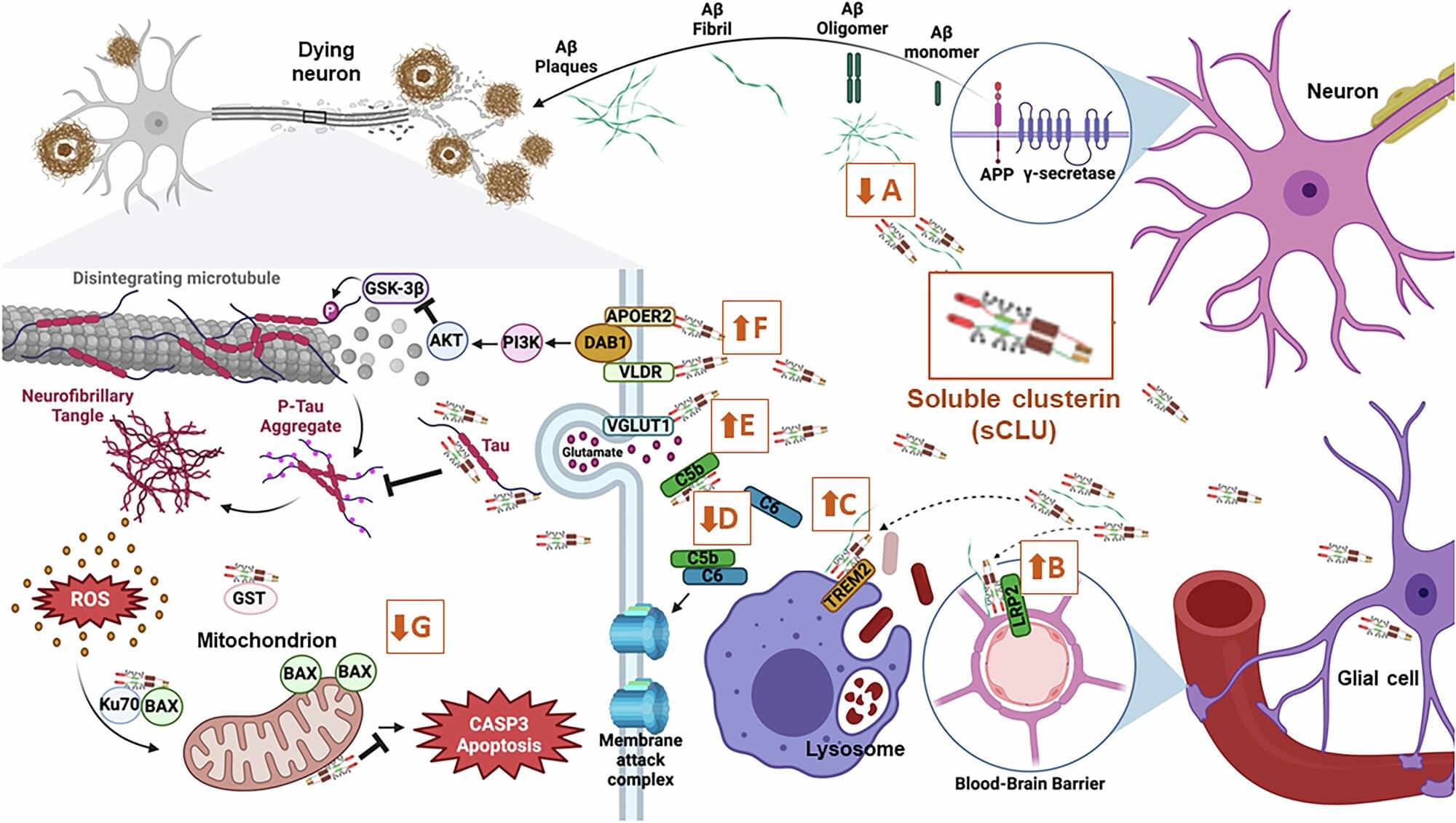As researchers work to improve treatment of Alzheimer’s disease, new research by UCLA Health identified a candidate drug that reduces levels of a toxic form of a protein in the brain caused by the disease and improved memory in mice by boosting production of a protective protein.
In a study published in npj Drug Discovery, UCLA Health researchers targeted the protein clusterin (CLU), which is crucial in preventing the build-up of amyloid-beta plaques and tau proteins that disrupt communication between brain cells and lead to memory impairment—a hallmark symptom of Alzheimer’s disease.
More than a decade ago, a variant of the gene that encodes clusterin was identified as the third strongest genetic risk factor for late-onset Alzheimer’s disease. It was recently reported that increased CLU protein could provide protection against Alzheimer’s disease and cognitive decline.
